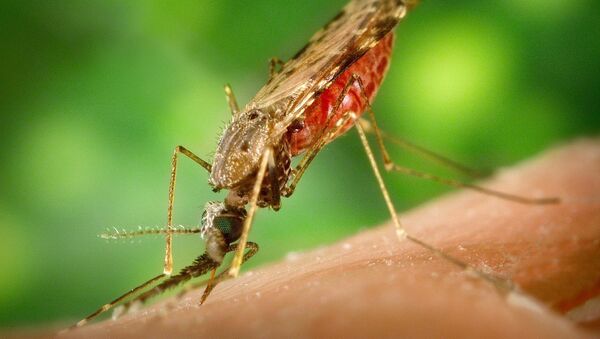The US Defense Advanced Research Projects Agency (DARPA) is investing $100 million in genetic extinction technologies that could wipe out entire populations of carriers of viral infections, such as malarial mosquitoes or invasive rodents, The Guardian reported, citing emails released under freedom of information rules.
According to the newspaper, the DARPA may aggravate tensions ahead of a UN expert committee meeting in Montreal on Tuesday, as there are fears that these technologies may lead to dangerous environmental consequences, as well as threaten peace and food security.
"You may be able to remove viruses or the entire mosquito population, but that may also have downstream ecological effects on species that depend on them… My main worry is that we do something irreversible to the environment, despite our good intentions, before we fully appreciate the way that this technology will work," a UN expert told the media outlet.
READ MORE: EXCLUSIVE: Doctor Reveals How World's First Genetically Modified Skin Saved Boy
Offensive or Defensive?
Since 2012, the bulk of the funds have come from DARPA and other military agencies, rather than health or science offices, suggesting governmental interest almost entirely relates to the use of such technology in the field of conflict. DARPA's official position is military interest is strictly limited to defense — the relatively low cost and high availability of gene editing tools means such resources could be used for nefarious purposes by hostile actors.
Institute Scholar in the News: Dr. Jacco C. Boon, has received a grant from the Defense Advanced Research Projects Agency (DARPA) for his project, "An Inducible Genetic Bioshield for Flexible and Rapid Protection of Body Portals Against Bioweapons Attack of Diverse Types."
— WUSTL Public Health (@WUSTLpubhealth) November 22, 2017
However, concerns have been raised about the potential militarization of biology by many, among them individuals who've received financing from the US military themselves. For example, Todd Kuiken worked with the Genetic Biocontrol of Invasive Rodents program, which received US$6.4 million from DARPA — in an article for Slate magazine, he suggested the prominent role of DARPA et al in gene technology funding meant researchers may reorient projects to fit the aims of the US military.
"These programs represent a new and controversial approach to leveraging the natural world-one that militarizes the environment. The technologies that emerge will not only be a big deal for the innovations they will bring, but also for the legal and ethical lines they may cross. It's possible DARPA's work is bending the entire field of synthetic biology toward military applications," he wrote.
Even if DARPA's initial intentions are benign, Kuiken stated the development of such technology would create a "classic" dual-use scenario — after all, an insect engineered to carry a virus for protective purposes, can alternatively be engineered to carry a virus for offensive purposes.
He also suggested much of DARPA's synthetic biology research is classified, meaning publicly available documentation on the projects offers little clue as to the true nature of the agency's forays into the field.
Ethnic Bioweapons
Moreover, there is much documentation to suggest the US and other governments wish to create "ethnic bioweapons" — armaments that only harm members of specific ethnicities or genotypes.
For instance, in its infamous 2000 policy paper Rebuilding America's Defenses, influential neoconservative think tank Project for the New American Century said "advanced forms of biological warfare that target specific genotypes" would transform biological warfare "from the realm of terror to a politically useful tool."
Elsewhere, in 1998 furor erupted when reports indicated Israel was in the process of building an "ethno-bomb" that would target genetic traits present in Arabs. While the charge was denied by Israeli officials, and some microbiologists and geneticists expressed skepticism about its scientific plausibility, in 2005 the International Committee of the Red Cross said such a prospect was "not far off."
Similarly, a 2016 Foreign Policy article said the military use of viruses to chemically castrate an ethnic population was a distinct possibility, based on available evidence about advancements in the field — and such an arsenal may be an ideal non-lethal weapon, capable of producing bloodless battleground defeats.
The issue of imposing a moratorium on gene research next year is reportedly under debate at the moment within the UN Convention on Biological Diversity (CBD).
The US seems to be coming to grips with the challenges of bioengineering, with the country's Environmental Protection Agency recent approval of a new method pioneered by biotech company MosquitoMate to produce special tiger mosquitoes, potentially killing other wild species carrying deadly viruses.
READ MORE: Latest Buzz: US EPA Approves Use of Lab-Grown Mosquitoes to Kill Wild Mosquitoes
This and similar experiments took place across the country after the US had been considering using lab-grown mosquitoes to reduce the spread of mosquito-borne diseases for several years. Last year a similar project in Florida was approved by the federal government last year, but rejected by local voters because of potential effects it could have on the local environment.

